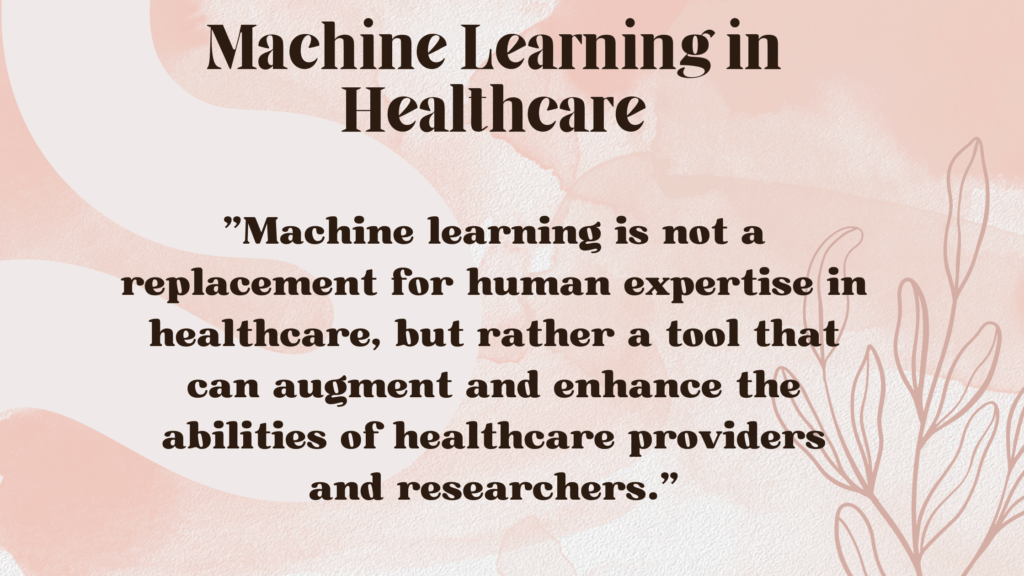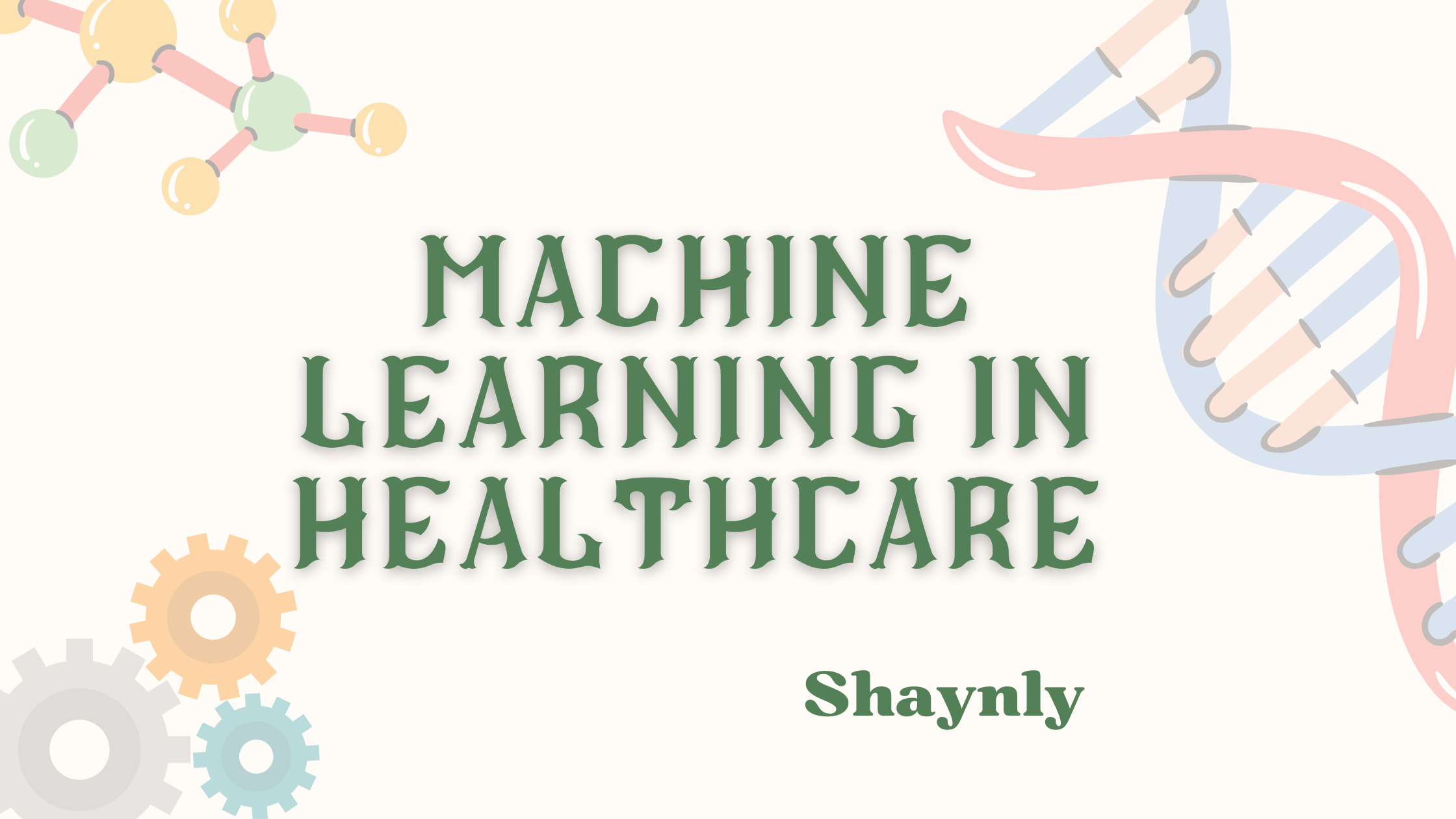Table of Contents
In recent years, machine learning has made its way into various industries, including healthcare. Machine learning algorithms enable computers to learn and make decisions based on large amounts of data, without being explicitly programmed. The use of machine learning in healthcare has the potential to revolutionize the industry, leading to faster and more accurate diagnoses, improved patient outcomes, and better resource utilization.
In this article, we will explore the role of machine learning in healthcare, its applications, and its potential impact on the medical industry.
Introduction to Machine Learning in Healthcare
Machine learning algorithms can be applied to a wide range of healthcare-related data, including electronic health records, medical images, and genomics data. These algorithms can analyze and learn from large amounts of data, identifying patterns and relationships that may be difficult or impossible for humans to detect.
In order to fully realize the potential of machine learning in healthcare, it is important for healthcare providers and researchers to collaborate with data scientists and machine learning experts to develop and implement effective solutions.
As with any new technology, there are also challenges and potential risks associated with the use of machine learning in healthcare. These include issues related to data privacy and security, as well as concerns around the potential for bias in algorithmic decision-making. It is important for these risks to be carefully considered and addressed in the development and implementation of machine learning solutions in healthcare.
Machine learning has the potential to transform healthcare in a variety of ways, from improving diagnostic accuracy to optimizing resource allocation. By working together and carefully considering the risks and challenges associated with this technology, we can ensure that machine learning is used to its full potential in improving healthcare outcomes.
One of the most significant advantages of using machine learning in healthcare is the potential to improve the accuracy and speed of medical diagnoses. Machine learning algorithms can process vast amounts of data and identify patterns and trends that may be indicative of a particular disease or condition.

Applications of Machine Learning in Healthcare
Medical Image Analysis
One of the most prominent applications of machine learning in healthcare is medical image analysis. Machine learning algorithms can analyze medical images, such as X-rays, CT scans, and MRI images, to identify patterns and features that may indicate a particular disease or condition.
For example, a machine learning algorithm could be trained to analyze CT scans and identify signs of lung cancer. The algorithm would learn to recognize patterns in the scans that are indicative of cancer, allowing for faster and more accurate diagnoses.
Drug Discovery
Machine learning algorithms can also be used to discover new drugs and treatments. By analyzing large amounts of data, including genomic data, chemical structures, and clinical trial data, machine learning algorithms can identify potential drug candidates and predict their efficacy and safety.
This could significantly reduce the time and resources required for drug discovery and development, leading to faster and more efficient drug development processes.
Patient Risk Stratification
Machine learning algorithms can also be used to stratify patients based on their risk of developing a particular disease or condition. By analyzing patient data, including medical history, genetic data, and lifestyle factors, machine learning algorithms can predict a patient's likelihood of developing a particular disease.
This information can be used to target preventative interventions and treatments to high-risk patients, potentially leading to better patient outcomes.
Predictive Analytics
Predictive analytics is another significant application of machine learning in healthcare. By analyzing patient data, including electronic health records and medical claims data, machine learning algorithms can predict future healthcare needs and resource utilization.
This information can be used to optimize resource allocation, reduce healthcare costs, and improve patient outcomes.
Potential Impact of Machine Learning on the Medical Industry
The potential impact of machine learning on the medical industry is significant. By enabling faster and more accurate diagnoses, machine learning algorithms can help reduce the time and resources required for diagnosis and treatment. This could potentially lead to better patient outcomes and improved resource utilization.
Additionally, the use of machine learning in drug discovery could significantly reduce the time and resources required for drug development, leading to faster and more efficient drug development processes.
FAQ's
- What is machine learning in healthcare?
Machine learning in healthcare is the application of machine learning algorithms to healthcare-related data, such as electronic health records, medical images, and genomics data.
- What are the applications of machine learning in healthcare?
The applications of machine learning in healthcare include medical image analysis, drug discovery, patient risk stratification, and predictive analytics.
- How can machine learning improve patient outcomes?
Machine learning can improve patient outcomes by enabling faster and more accurate diagnoses, stratifying patients based on their risk of developing a particular disease, and predicting future healthcare
needs and resource utilization. This can lead to targeted preventative interventions and treatments, potentially resulting in better patient outcomes.
- What are the potential benefits of using machine learning in drug discovery?
The use of machine learning in drug discovery can significantly reduce the time and resources required for drug development, leading to faster and more efficient drug development processes. Machine learning algorithms can analyze large amounts of data, including genomic data, chemical structures, and clinical trial data, to identify potential drug candidates and predict their efficacy and safety.
- How can machine learning algorithms help optimize resource allocation in healthcare?
Machine learning algorithms can analyze patient data, including electronic health records and medical claims data, to predict future healthcare needs and resource utilization. This information can be used to optimize resource allocation, reduce healthcare costs, and improve patient outcomes.
Conclusion
Machine learning has the potential to revolutionize the healthcare industry, enabling faster and more accurate diagnoses, improving patient outcomes, and optimizing resource utilization. With applications ranging from medical image analysis to drug discovery, machine learning is poised to play a significant role in the future of healthcare.
As machine learning algorithms continue to improve and become more widely adopted, we can expect to see continued advancements in the medical industry, potentially leading to better patient outcomes and improved resource utilization.

